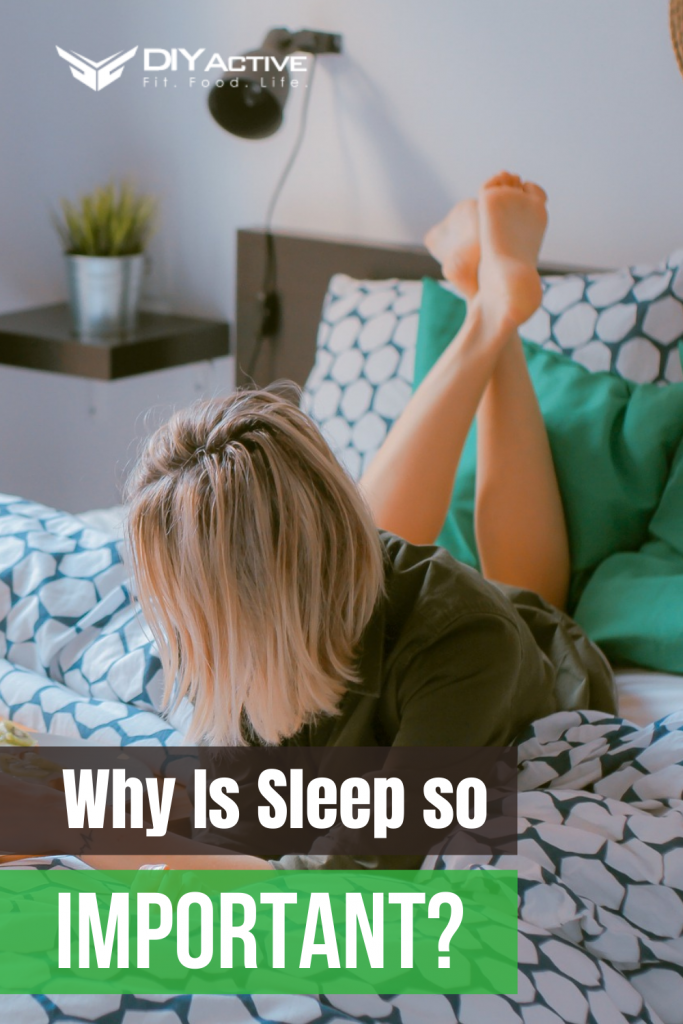Why Is Sleep Important?
There’s no doubt sleep is crucial. Everyone has felt the impact of having too little sleep the night before, so we’re intuitively aware of this. What fewer of us know is just how central sleep is to our general health and wellness.
Find out why is sleep important
For getting a decent night’s sleep, step one has to be about the right mattress. It’s important to find the best mattress, whatever your particular needs may be. From there, you can think about all the other aspects of your sleeping routine.
1. Toxins
As sleep research becomes more sophisticated, we’re learning new things. For example, we now know that the body deals with toxic build-up more efficiently during sleep. This is true throughout the entire system.
The suggestion here is that the body has many functions to control during our more energetic periods and thus uses sleep for others. The rate of removal is significantly ramped up during proper sleep.
2. Cognition
Perhaps no part of the body is more heavily reliant on sleep than the brain. Our cognitive faculties are so dependent on the reset provided by sleep that we become significantly dumber when we’re sleep-deprived.
This holds true of all the measurable areas of cognition. Creativity, logic, verbal dexterity, puzzle-solving, pattern-finding, and pretty much every other aspect of human reasoning is negatively affected by too little sleep.


Along with cognitive impairment, having insufficient sleep plays havoc with our moods. As many can attest, anxiety and depression can often be the first signs of a lack of decent sleep in our routines.
The mood balance of the human brain relies very heavily on the well-being of the chemistry in the brain itself. If the brain isn’t functioning as it should, there’s little hope that our psychological health will be robust.
4. Heart Function
Recent research has shown that it isn’t the brain alone that’s strongly affected by improper sleep. There’s good evidence that heart function is impacted too, which is never good for overall health.
It’s now a settled scientific fact that lack of sleep is directly related to high blood pressure, for example. It may also be involved in several other heart-related ailments such as arrhythmia, on top of this.
5. Liver Function
Too little proper sleep has also been directly linked to several illnesses stemming from liver function. Diabetes, for example, can be traced in part to poor sleep. During periods of sleep, your renal system behaves differently.
It is during these hours that the liver operates quite differently than it does during waking hours. If you don’t sleep right, your liver cannot produce glucose or effectively deal with insulin. This leads to all kinds of metabolic problems.
6. Longevity
The better your sleeping patterns, the better it is for you in terms of longevity too. Clearly, having toxins filtered effectively from your body is a good thing. So is not getting cardiovascular disease or diabetes.
It’s long been understood in the anecdotal sense that sleep and longevity are connected, and now science is demonstrating the same thing. Living healthily is very much a part of living longer.
7. Wellbeing in General
When we consider human wellbeing, there’s a holism to the question. It implies wellness of the body, the mind’s cognitive faculties, and also psychological aspects. For humans to flourish, all of these need to be considered together.
It is, therefore, absolutely central to any conception of human well-being that sleep is adequately taken care of. It’s a crucial part of happiness and should never be taken lightly.
Wrap-Up
It’s important that folks live in the way they wish to, and this can sometimes lead to some people undervaluing sleep. It’s particularly true of younger people, who have so many exciting things to do at night.
The trouble is when we undervalue sleep it can be very serious in a whole host of ways. A big part of taking proper care of yourself is about sleeping right, as part of a balanced and planned daily routine. It may not seem very thrilling, but it’s crucial.